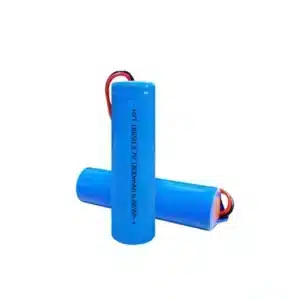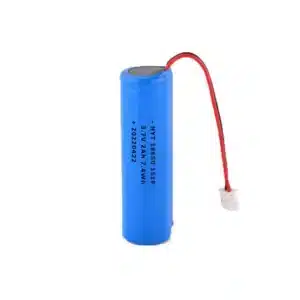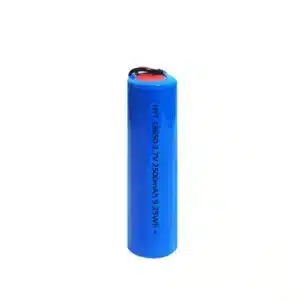Tracker Lithium Battery
Lithium batteries are widely adopted in modern pet tracking devices due to their high energy density and long-lasting capabilities. These devices primarily rely on GPS, Beidou, and Wi-Fi technologies to provide real-time location tracking of pets. Key features of pet trackers include real-time location, activity tracking, alert notifications, and health monitoring.
These devices are primarily used for dogs, cats, and other pets. The integration of lithium batteries with advanced positioning technologies and health monitoring features has significantly enhanced the usability and convenience of pet tracking devices.
Long Battery Life
Lithium batteries enable extended battery life, essential for devices that need to monitor pets around the clock.
Lightweight Design
The lightweight nature of lithium batteries allows pet trackers to be designed more compactly and portably.
Rapid Charging
Lithium batteries typically support fast charging technology, especially crucial for quick recharges in urgent situations.
Smart Power Management
Power consumption can be automatically adjusted based on the pet's activity level. The device will automatically enter a low-power mode to extend battery life.
Pet Tracking Lithium Battery Product
3.7V polymer batteries are widely used in pet trackers due to their high energy density and lightweight design. These batteries can provide sustained power in compact devices, ensuring trackers can operate for extended periods without frequent recharging. Moreover, the versatility of polymer batteries in terms of size and capacity allows for customization, accommodating various design requirements and enhancing the wearing comfort of pet trackers.
- 3.7V Li-polymer Lithium Battery
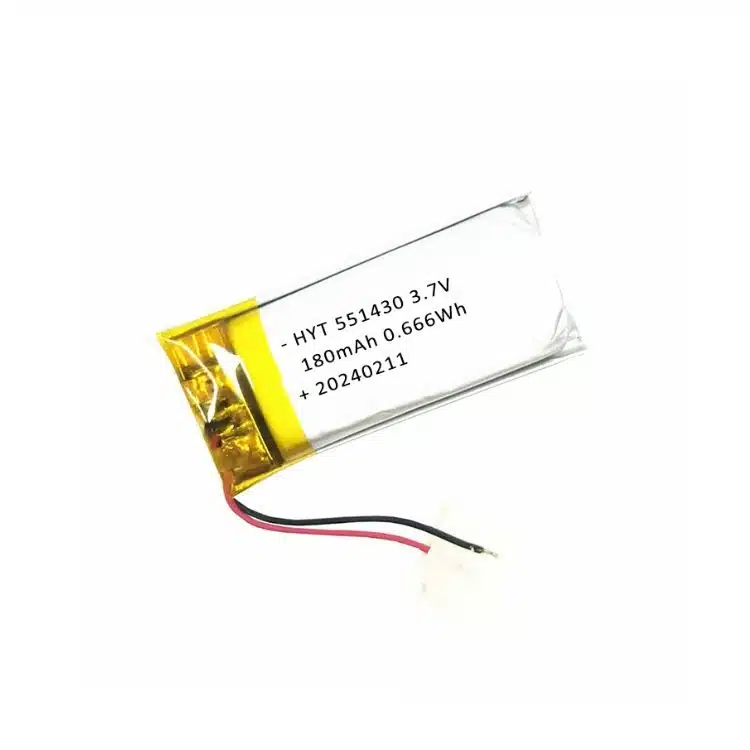
551430 3.7V 180mAh Battery
Nominal voltage: 3.7V
Nominal capacity: 180mAh
Rated energy: 0.666Wh
Thickness: ≤5.5mm
Widness: ≤14.0mm
Length: ≤30.0mm
Internal resistance: ≤150mΩ
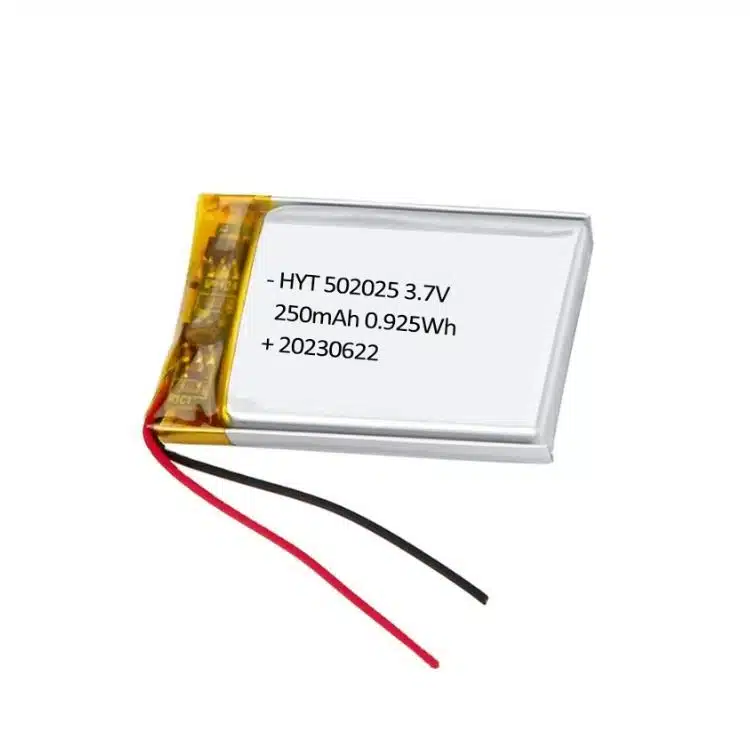
502025 3.7V 200mAh Battery
Nominal voltage: 3.7V
Nominal capacity: 200mAh
Rated energy: 0.74Wh
Thickness: ≤5.0mm
Widness: ≤20.0mm
Length: ≤25.0mm
Internal resistance: ≤120mΩ
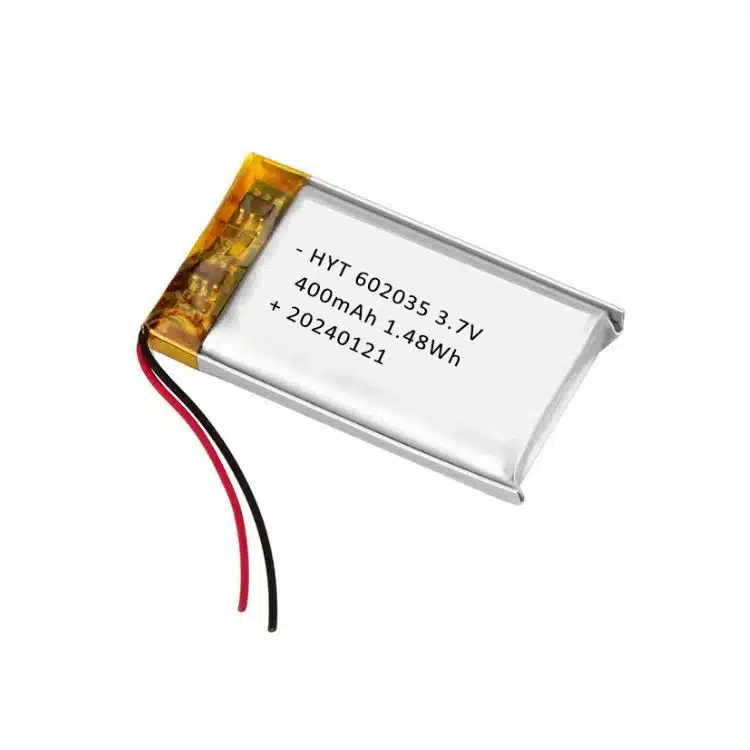
602035 3.7V 400mAh Battery
Nominal voltage: 3.7V
Nominal capacity: 400mAh
Rated energy: 1.48Wh
Thickness: ≤6.0mm
Widness: ≤20.0mm
Length: ≤35.0mm
Internal resistance: ≤100mΩ
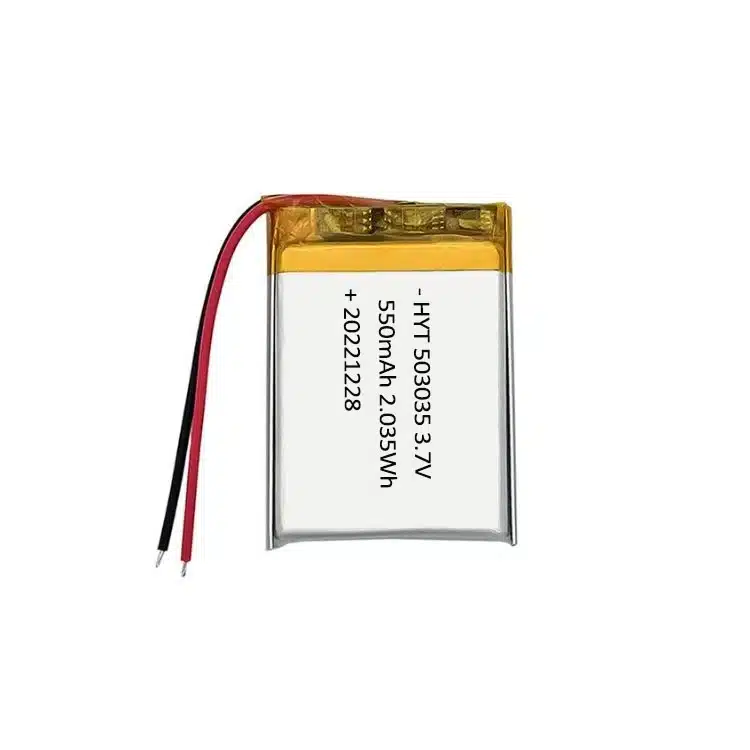
503035 3.7V 550mAh Battery
Nominal voltage: 3.7V
Nominal capacity: 550mAh
Rated energy: 2.035Wh
Thickness: ≤5.0mm
Widness: ≤30.0mm
Length: ≤35.0mm
Internal resistance: ≤80mΩ
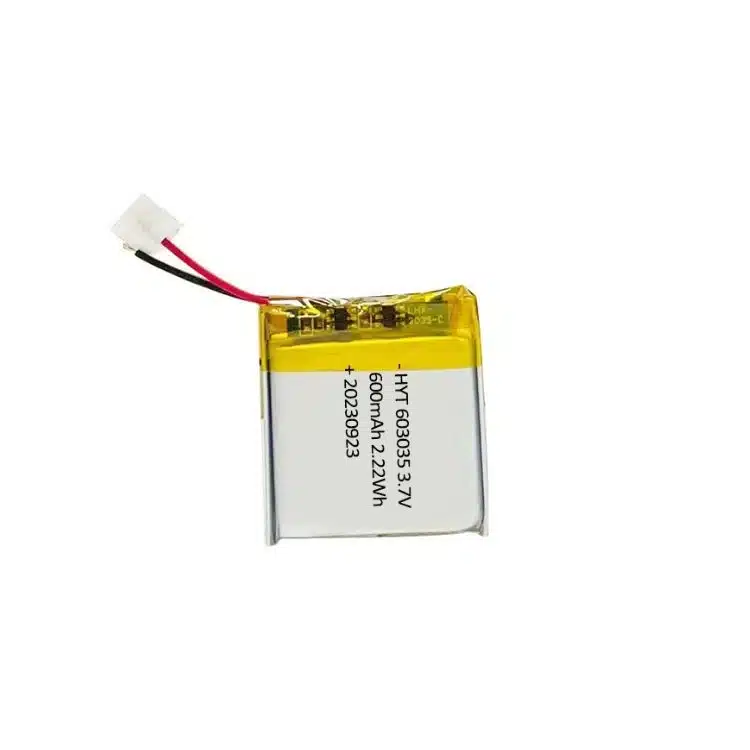
603035 3.7V 600mAh Battery
Nominal voltage: 3.7V
Nominal capacity: 600mAh
Rated energy: 2.22Wh
Thickness: ≤6.0mm
Widness: ≤30.0mm
Length: ≤35.0mm
Internal resistance: ≤75mΩ
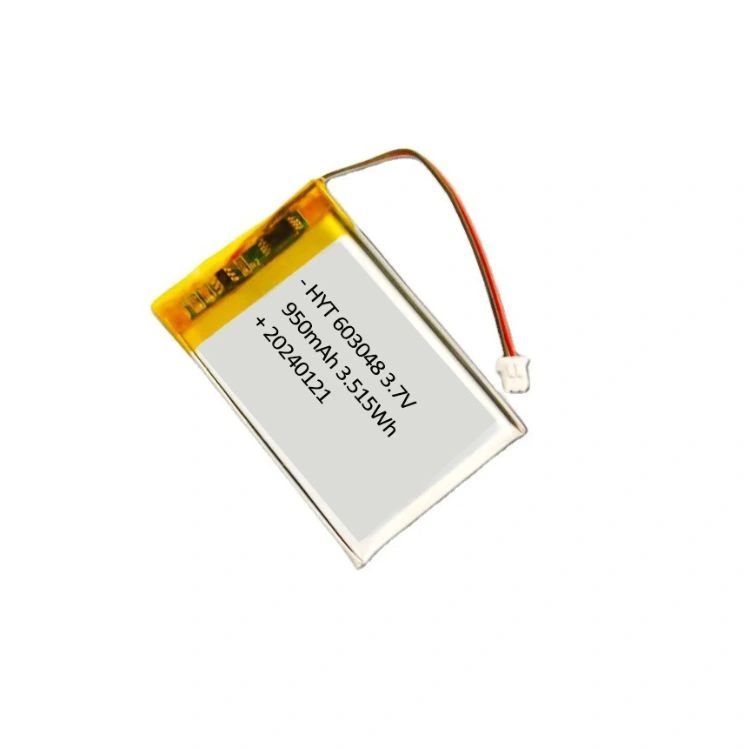
603048 3.7V 950mAh Battery
Nominal voltage: 3.7V
Nominal capacity: 950mAh
Rated energy: 3.515Wh
Thickness: ≤6.0mm
Widness: ≤30.0mm
Length: ≤48.0mm
Internal resistance: ≤60mΩ
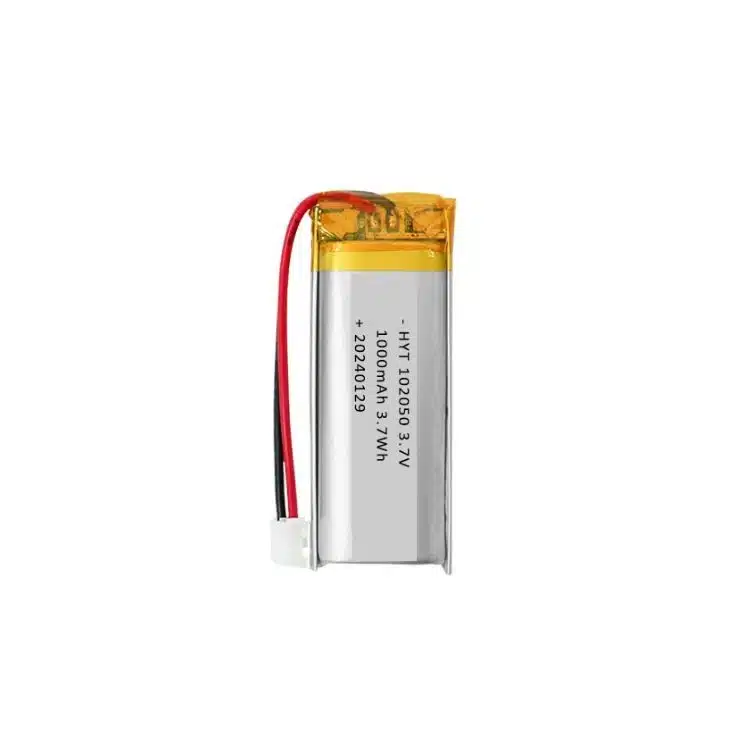
102050 3.7V 1000mAh Battery
Nominal voltage: 3.7V
Nominal capacity: 1000mAh
Rated energy: 3.7Wh
Thickness: ≤10.0mm
Widness: ≤20.0mm
Length: ≤50.0mm
Internal resistance: ≤70mΩ
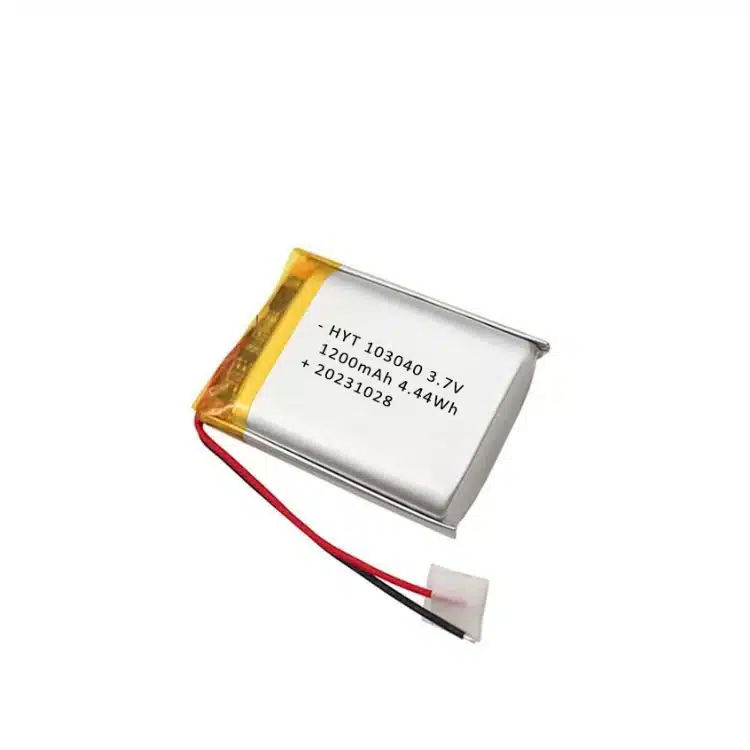
103040 3.7V 1200mAh Battery
Nominal voltage: 3.7V
Nominal capacity: 1200mAh
Rated energy: 4.44Wh
Thickness: ≤10.0mm
Widness: ≤30.0mm
Length: ≤40.0mm
Internal resistance: ≤60mΩ
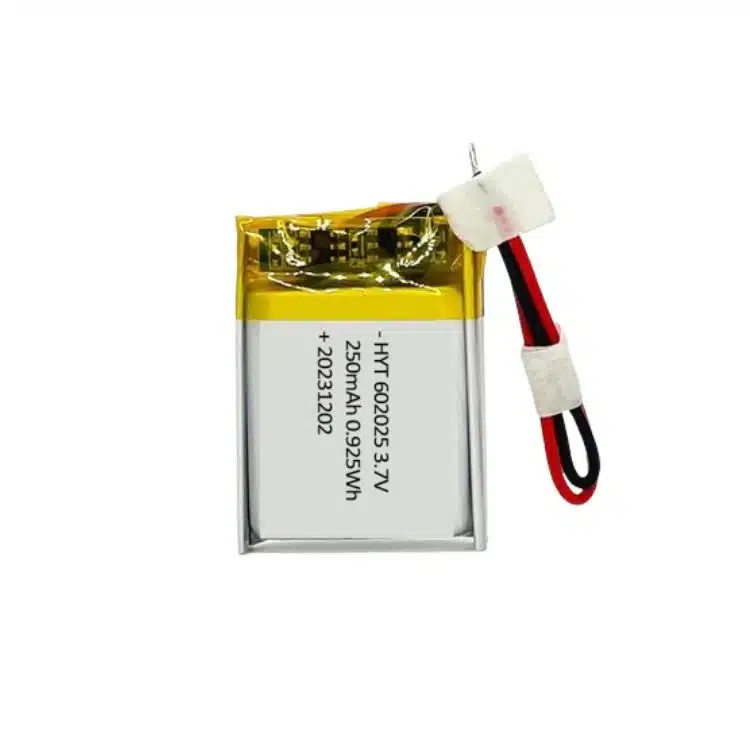
602025 3.7V 250mAh Battery
Nominal voltage: 3.7V
Nominal capacity: 250mAh
Rated energy: 0.925Wh
Thickness: ≤6.0mm
Widness: ≤20.0mm
Length: ≤25.0mm
Internal resistance: ≤120mΩ
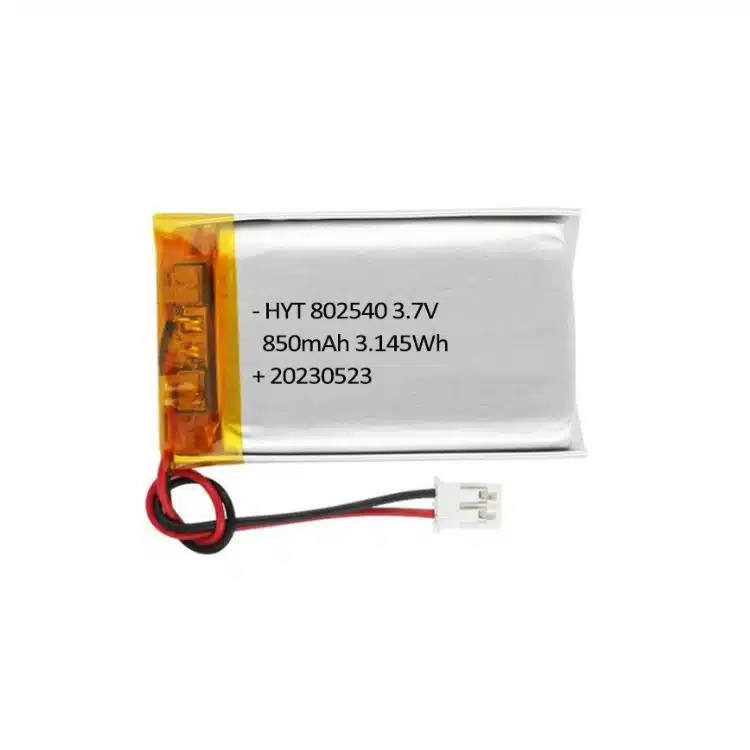
802540 3.7V 850mAh Battery
Nominal voltage: 3.7V
Nominal capacity: 850mAh
Rated energy: 3.145Wh
Thickness: ≤8.0mm
Widness: ≤25.0mm
Length: ≤40.0mm
Internal resistance: ≤70mΩ
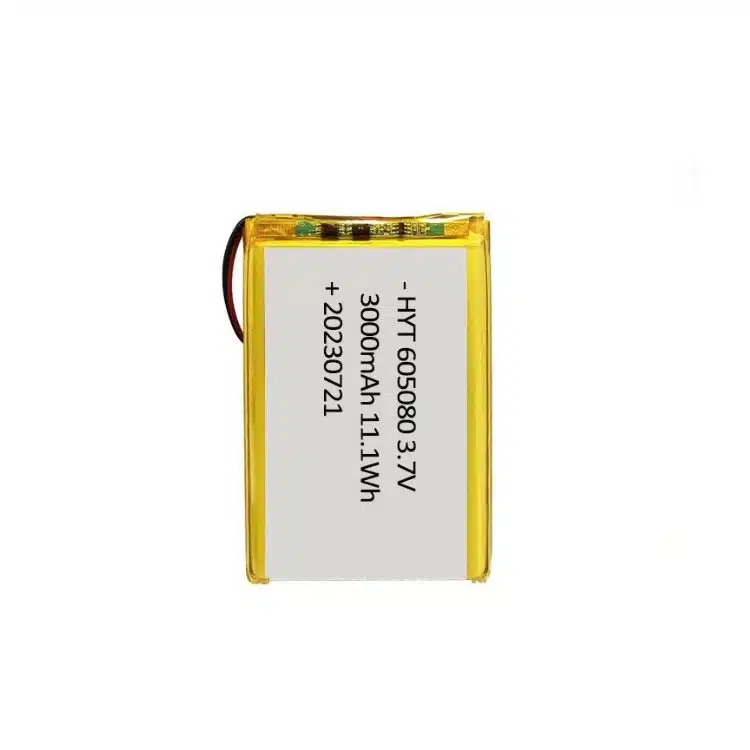
605080 3.7V 3000mAh Battery
Nominal voltage: 3.7V
Nominal capacity: 3000mAh
Rated energy: 11.1Wh
Thickness: ≤6.0mm
Widness: ≤50.0mm
Length: ≤80.0mm
Internal resistance: ≤60mΩ
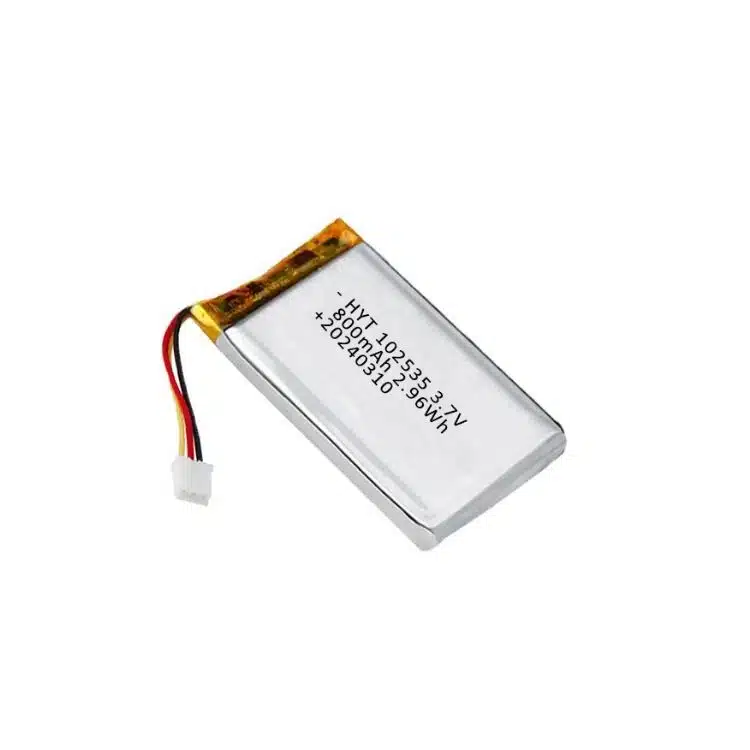
102535 3.7V 800mAh Battery
Nominal voltage: 3.7V
Nominal capacity: 800mAh
Rated energy: 2.96Wh
Thickness: ≤10.0mm
Widness: ≤25.0mm
Length: ≤35.0mm
Internal resistance: ≤70mΩ
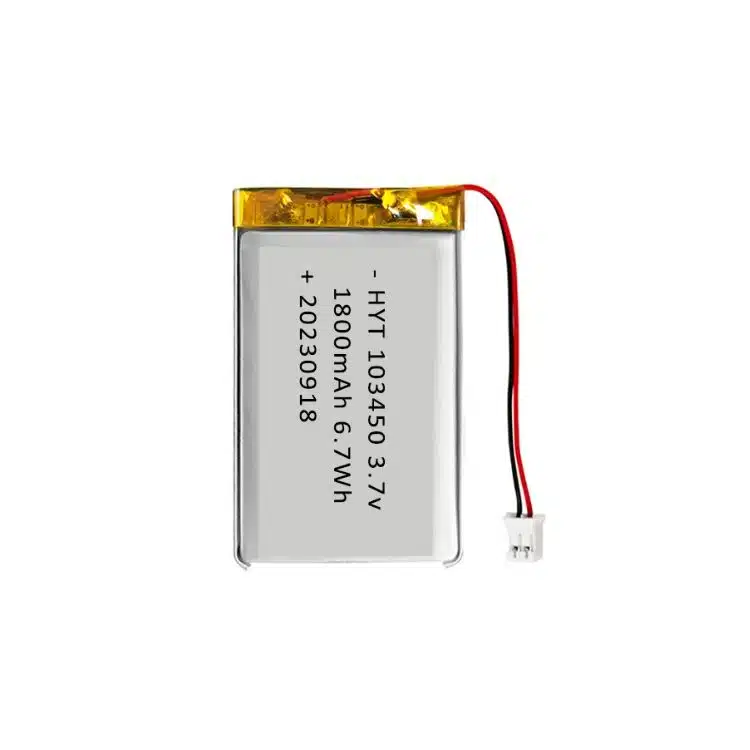
103450 3.7V 1800mAh Battery
Nominal voltage: 3.7V
Nominal capacity: 1800mAh
Rated energy: 6.66Wh
Thickness: ≤10.0mm
Widness: ≤34.0mm
Length: ≤50.0mm
Internal resistance: ≤60mΩ
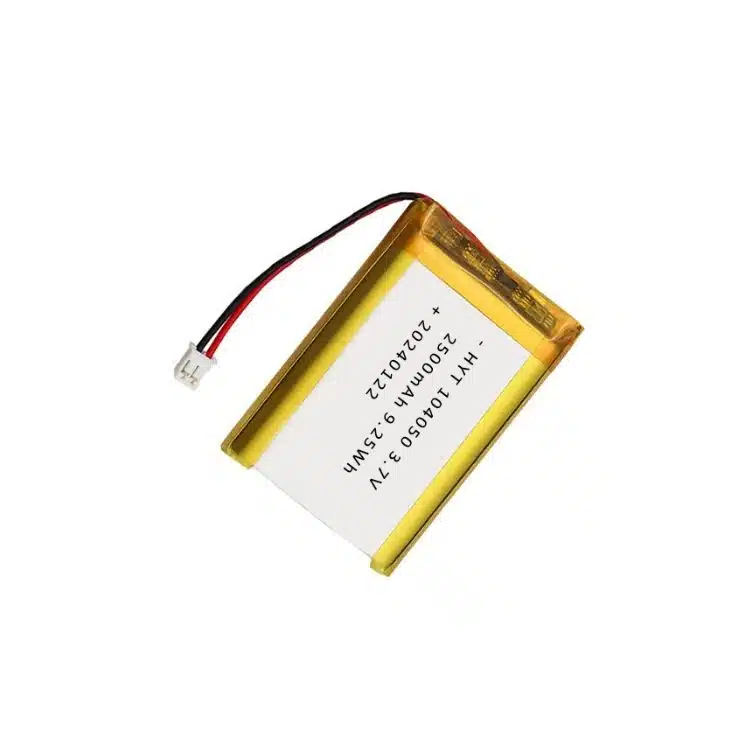
104050 3.7V 2500mAh Battery
Nominal voltage: 3.7V
Nominal capacity: 2500mAh
Rated energy: 9.25Wh
Thickness: ≤10.0mm
Widness: ≤40.0mm
Length: ≤50.0mm
Internal resistance: ≤60mΩ
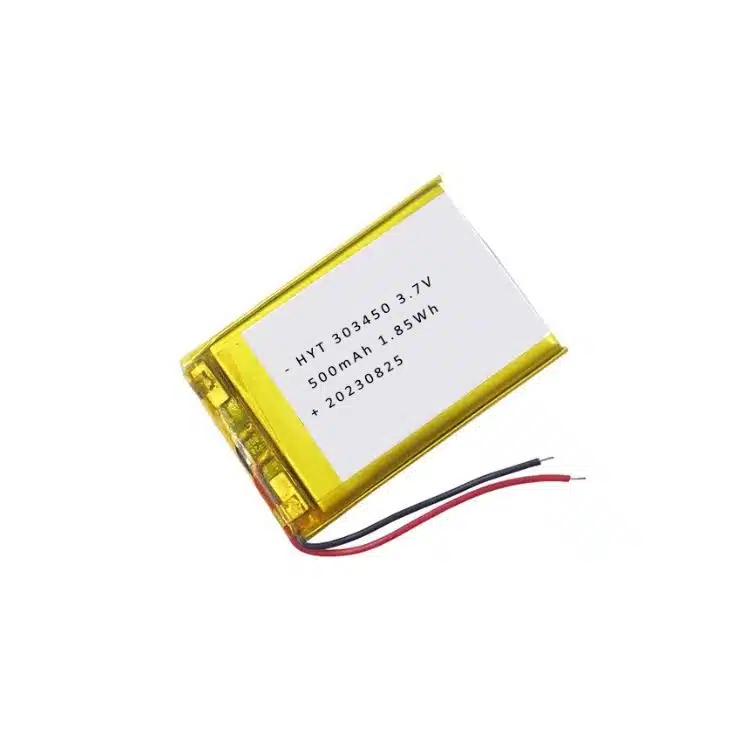
303450 3.7V 500mAh Battery
Nominal voltage: 3.7V
Nominal capacity: 500mAh
Rated energy: 1.85Wh
Thickness: ≤3.0mm
Widness: ≤34.0mm
Length: ≤50.0mm
Internal resistance: ≤80mΩ
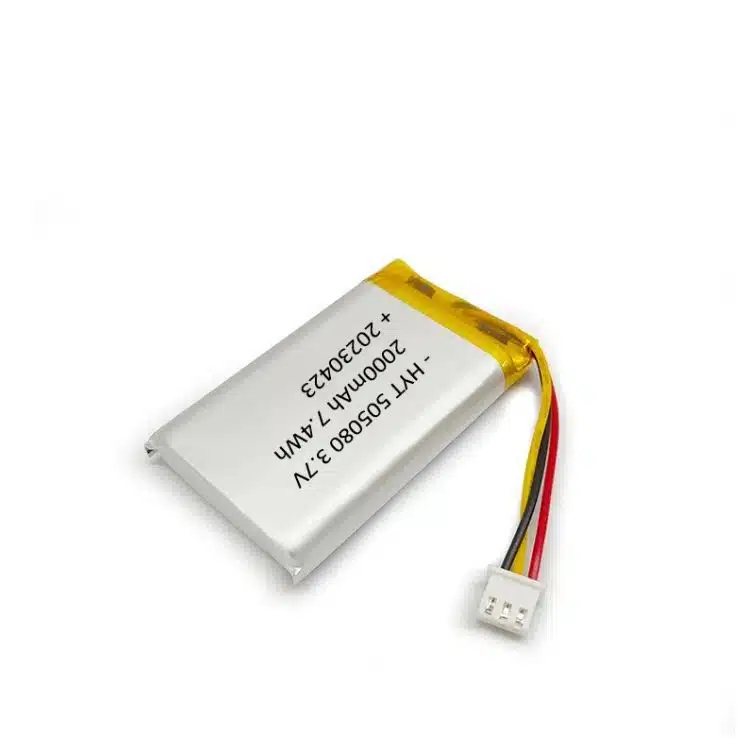
505080 3.7V 2000mAh Battery
Nominal voltage: 3.7V
Nominal capacity: 2000mAh
Rated energy: 7.4Wh
Thickness: ≤5.0mm
Widness: ≤50.0mm
Length: ≤80.0mm
Internal resistance: ≤50mΩ
Types of lithium batteries for trackers
Lithium-ion and lithium polymer batteries are the primary types of lithium batteries commonly used in trackers. Each type has its unique characteristics and is suitable for different applications.
Lithium-ion batteries are renowned for their high energy density and long cycle life, making them ideal for devices requiring a stable power supply. These batteries exhibit excellent charging and discharging performance without memory effects, allowing users to charge as needed without affecting battery life. Lithium-ion batteries can be easily combined in series and parallel, especially 18650 cells, offering flexibility in production orders.
Lithium polymer batteries offer even higher energy density and more flexible design options, making them suitable for ultra-thin devices. Polymer batteries can be customized with capacities ranging from 50mAh to 5000mAh, and their inherent safety reduces the risk of fire or combustion.
How to select the right tracker lithium battery
Selecting the appropriate lithium battery for a tracker involves considering several key factors to ensure optimal performance and reliability.
Battery Type
- Lithium-ion (Li-ion): Known for their high energy density and rechargeable nature, Li-ion batteries are suitable for medium to small devices requiring extended power. They are lightweight, have a low self-discharge rate, and are ideal for applications like GPS trackers, fitness trackers, and smartwatches.
- Lithium Polymer (Li-Po): Lighter than Li-ion batteries, Li-Po batteries can be manufactured into various shapes, making them suitable for ultra-thin and compact devices. They offer higher safety, with a lower risk of leakage or explosion, making them ideal for trackers requiring high safety standards.
- Lithium Iron Phosphate (LiFePO4): Renowned for their long cycle life and high safety, LiFePO4 batteries are suitable for more demanding applications. They provide a stable power output and are ideal for devices requiring long-term reliability.
- Lithium-ion (Li-ion): Known for their high energy density and rechargeable nature, Li-ion batteries are suitable for medium to small devices requiring extended power. They are lightweight, have a low self-discharge rate, and are ideal for applications like GPS trackers, fitness trackers, and smartwatches.
Specifications and Performance
- Voltage and Capacity: Ensure the battery’s voltage and capacity meet the tracker’s operational requirements.
- Size and Weight: Consider the size and weight of the battery to ensure it fits within the tracker’s design and maintains portability.
- Charge and Discharge Current: Select a battery with a maximum charge and discharge current that matches the device’s load.
- Voltage and Capacity: Ensure the battery’s voltage and capacity meet the tracker’s operational requirements.
By carefully considering these factors, you can choose the most suitable lithium battery for your specific tracker application, enhancing the device’s performance and user experience.
FAQs for tracker lithium ion battery
Charge the tracker's lithium battery using the recommended charger to avoid overcharging and potential battery damage. Please unplug the charger after the battery is fully charged to maintain optimal battery health.
The warranty period for tracker polymer batteries is typically one year.
Yes, the AirTag uses a CR2032 coin cell battery.
The typical lifespan of a tracker's lithium battery is between 2 and 5 years, though it can be extended if the discharge current is low. The actual lifespan is dependent on usage patterns, charge cycles, and environmental conditions.
